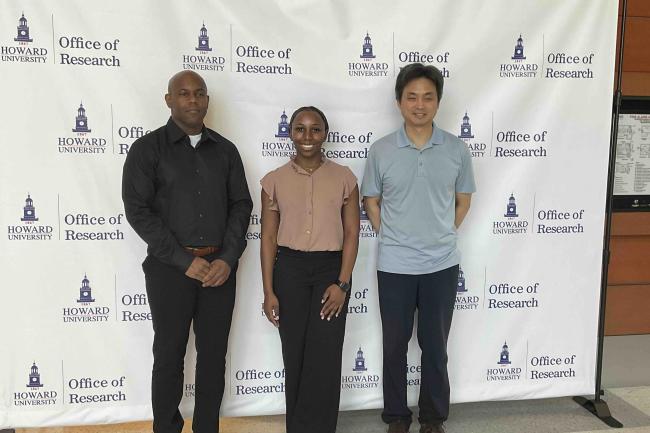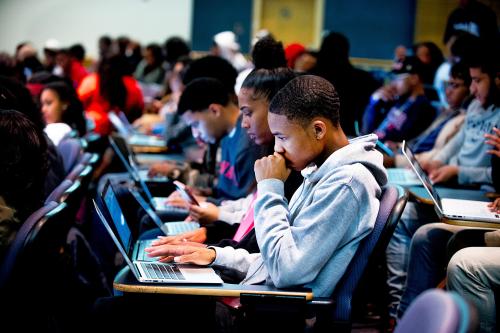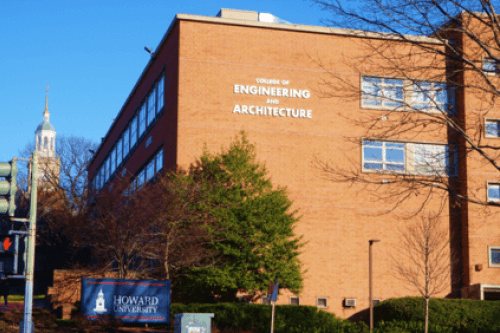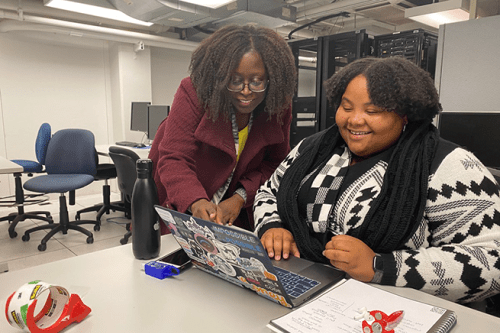From AI diagnostics to empowering caregivers, Howard University’s recent Guppy Talk offered a vivid snapshot of its expanding cancer research portfolio and its commitment to building up the next wave of cancer research leaders.
Organized as a showcase for recipients of the Diversity in Cancer Research pilot grants, the event underscored Howard’s commitment to both scientific innovation and health equity, while spotlighting the next generation of research leaders. The “Diversity in Cancer Research Guppy Talk” was held as part of Howard University’s April Research Month activities.
The presenters were students and faculty who are among the most recent awardees of a groundbreaking initiative of the American Cancer Society. The program provides seed funding for early-stage investigators, allowing them to launch ambitious projects with real-world impact and grow toward nationally competitive funding.
Carla Williams, Ph.D., interim director of the Cancer Center, said that gatherings like the Guppy Talk are central to Howard’s broader effort to maintain its R1 research status and expand its national research footprint.
“Our scientists are showing they can design and execute high-quality research,” Williams said. “These pilot grants give them the seed funding to prove it—and the structure to build out more competitive proposals for national funding.”
The program also supports Howard University masters-level degree programs to conduct mentor research projects.
Brian McFarland, Army veteran and doctoral candidate in the Howard University School of Social Work, is developing dissemination and implementation research to study “Partners in Survival” — a program designed to support male caregivers who are often left out of traditional oncology conversations. McFarland’s research interests were shaped by his training at Howard and his personal experience caring for his wife during her stage four cancer diagnosis.
This is about giving caregivers the tools they need to stay strong for their loved ones,” McFarland said.
He added, “A diagnosis doesn’t just affect the patient — it impacts the whole family. We’re here to make sure no one is left behind in that journey.”
McFarland’s work builds on a peer-led model developed by Marc Heyison, a long-time partner of the Howard University Cancer Center and founder of, Men Supporting Women With Cancer. Partners In Survival provides training, mental health tools, and culturally responsive support.
The program also aims to reduce caregiver burnout and improve survivorship outcomes. MacFarland said he is seeking to increase access to this program for all communities, including those where long-term disparities persist.
Another was Kennedy Jester, a master of public health student whose research explores how the process of epigenetic modulation (small changes in gene activity) can help improve outcomes for patients with head and neck cancers. These cancers are often aggressive and resistant to treatment. Jester said the feedback from the event was instrumental in helping her clarify her research direction.
“I’m still in the early stages,” she said. “But my hope is that this work lays the groundwork for more effective, more personal treatments—and for more patients to have a fighting chance.”
The Guppy Talk also spotlighted innovative interdisciplinary research led by Howard faculty from various fields.
- Kholood Ahmad, Ph.D., and her team are developing an AI-powered tool for early breast cancer detection, designed to better serve Black women in Washington, D.C., who face disproportionate delays in diagnosis and treatment.
- Ramin Abolfath, Ph.D., is studying FLASH ultra-high dose rate radiotherapy through advanced simulation models that aim to minimize damage to healthy tissue while maximizing treatment precision.
- Shaolei Teng, Ph.D., presented research using bioinformatics to study cancer-linked mutations in peroxidase genes, with the potential to unlock new approaches to diagnosis and treatment.
Pamela L. Carter-Nolan, Ph.D., MPH, director of the Master of Public Health Program, emphasized the significance of interdisciplinary collaboration showcased during the Guppy Talk presentations. She noted that the student researchers are from varied academic backgrounds, including those from public health, social work, and data science.
“Interdisciplinary research is critical,” Carter-Nolan said. “It gives us a well-rounded approach to addressing complex problems like cancer disparities. Whether it’s from the lab bench or a community clinic, we all have something to contribute.”
She added that events like the Guppy Talk underscore the importance of not only scientific excellence, but also strengthening researchers’ ability to communicate with the public — bridging the gap between technical research and community understanding.
“We have to be able to speak in the scientific forum, but also to the general public,” she said. “Translating research into real-world impact is how we move from discovery to delivery.”
Looking ahead, Williams said the Cancer Center plans to deepen community engagement and explore the ethical dimensions of emerging technologies like artificial intelligence. The goal, she said, is not just to foster technological innovation but also to ensure the benefits of that innovation reach all communities in a way that ensures no one experiences undue burden of disease.
Pictured: Brian McFarland, Kennedy Jester, and Shaolei Teng.
###






